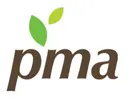C OVID-19 has emphasized the consumers’ desire and demand for a business to present a strong digital presence. As consumers began to stockpile staples and leaned into online ordering, the fresh floral industry gained insight into the necessity of a strong online presence for the future. In the July 29 virtual roundtable, panelists from Tesco Ireland and Royal FloraHolland (RFH) discussed how sales have been impacted by COVID-19, what their companies have learned from these changes and what other future changes the floral industry can expect to see.
OVID-19 has emphasized the consumers’ desire and demand for a business to present a strong digital presence. As consumers began to stockpile staples and leaned into online ordering, the fresh floral industry gained insight into the necessity of a strong online presence for the future. In the July 29 virtual roundtable, panelists from Tesco Ireland and Royal FloraHolland (RFH) discussed how sales have been impacted by COVID-19, what their companies have learned from these changes and what other future changes the floral industry can expect to see.

The data
PMA’s IRI and consumer sentiment data confirms that despite being hit hard in the early stages of COVID-19, floral sales are showing a strong rebound, with sales at retail up 6.6% over the same week last year. Representatives from Tesco Ireland and RFH are seeing similar floral sales patterns in Europe.
Tesco Ireland saw a healthy 4% growth pre-COVID-19 with sales taking a plunge to -18% below 2019 in March and April. Despite these low numbers, floral sales have steadily grown since the end of April and now sit at 7.8% above 2019.
RFH has seen a 10% decrease in sales versus 2019 in the first semester, with cut flowers decreasing by 14%, houseplants decreasing by 7.1% and garden plants seeing an increase of 8.8% due to good prices compensating for the loss. Despite lower sales numbers in 2020, RFH is optimistic for following years and looking forward to what they can do to make their operations more efficient.
Looking at the trends
Members of the floral industry are witnessing a shift in long-term changes, both in consumer purchasing patterns and to the industry.
Consumer purchasing changes that participants are seeing include:
- Fewer visits to stores, with bigger basket sizes when they do shop, as consumers seek to spend less time out of their homes.
- Growth in online purchasing, although floral has not enjoyed this growth in the same way other commodities have due to lack of strategies to implement and execute.
- A trend toward self-care, with more people spending time and money on their home.
- A desire for transparency and a sustainable production method.
As a result of shifts in consumer behaviors, industry changes that participants are experiencing include:
- An acceleration in the shift from clock to direct payments for workforce.
- Clear floor policies in stores with less clutter, particularly at the front of store, to better showcase options to consumers.
- Value over quantity of product.
A full commitment to sustainability. - More use of sales data in merchandising and promotion tactics.
- An increase in new digital channels.
Making changes
Companies throughout the floral industry are making changes to adapt to shifting trends. Tesco is looking to create a cleaner-looking, more streamlined front-of-store display with less range to confuse shoppers, and higher-quality product to appeal to consumers new self-care mentalities.
RFH has plans in place to implement 100% digital, one clock and international payments for employees as soon as possible. They are looking into developing new digital services to appeal to the online shift, and remain fully committed to sustainability. RFH plans to have every supplier commit to digital environmental registration by the end of 2020 and by the end of 2021 all suppliers must have a market-compliant environmental certificate.
Both participants cited looking into cost-saving measures and are putting plans in place for potential secondary impact from COVID-19.
Next floral roundtable on August 12th
PMA's next floral roundtable meeting is August 12th where they are hosting Laurie Pressman from the Pantone Institute to share the latest on color, home décor and fashion trends. Also, John Elstgeest and Mark Frank with Flower Circus will join us to bring designs to life based off of the Pantone Color Trends. Click here to register.
